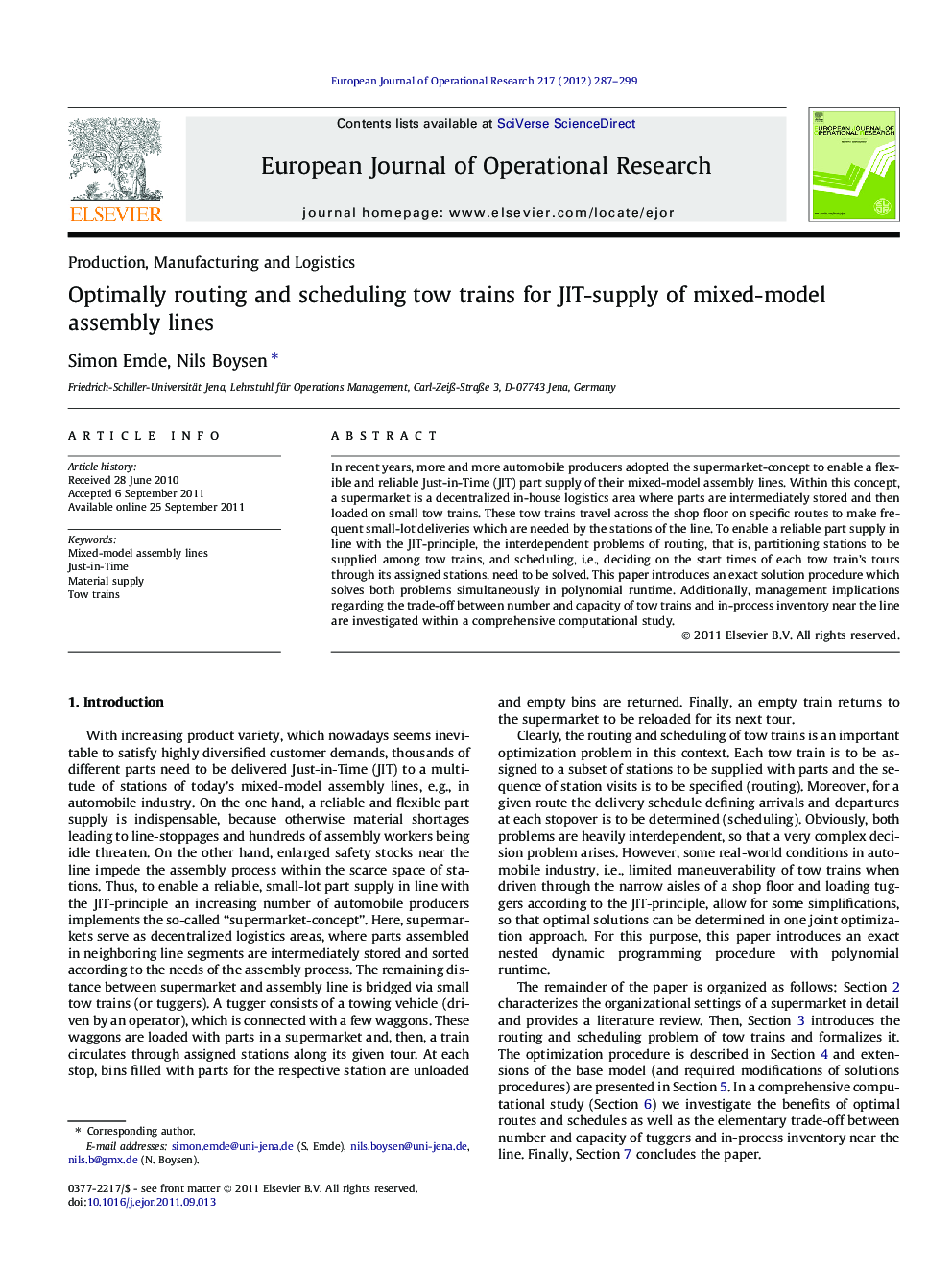| Article ID | Journal | Published Year | Pages | File Type |
|---|---|---|---|---|
| 478422 | European Journal of Operational Research | 2012 | 13 Pages |
In recent years, more and more automobile producers adopted the supermarket-concept to enable a flexible and reliable Just-in-Time (JIT) part supply of their mixed-model assembly lines. Within this concept, a supermarket is a decentralized in-house logistics area where parts are intermediately stored and then loaded on small tow trains. These tow trains travel across the shop floor on specific routes to make frequent small-lot deliveries which are needed by the stations of the line. To enable a reliable part supply in line with the JIT-principle, the interdependent problems of routing, that is, partitioning stations to be supplied among tow trains, and scheduling, i.e., deciding on the start times of each tow train’s tours through its assigned stations, need to be solved. This paper introduces an exact solution procedure which solves both problems simultaneously in polynomial runtime. Additionally, management implications regarding the trade-off between number and capacity of tow trains and in-process inventory near the line are investigated within a comprehensive computational study.
► We model the routing and scheduling of tow trains in automotive assembly plants. ► We propose a procedure to optimally solve both problems in polynomial time. ► The effect of optimal routes and schedules on in-process inventory is investigated. ► Optimal schedules are more important than optimal routes.
